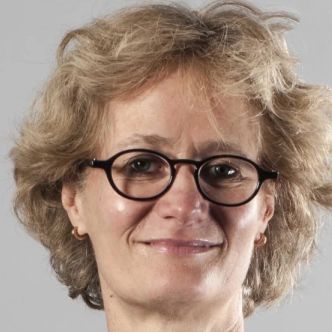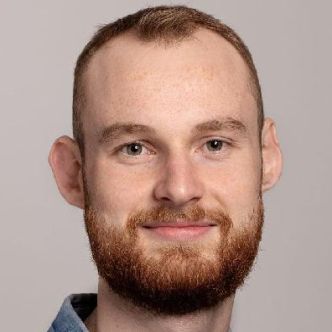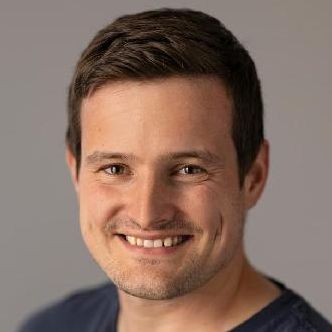Healthcare systems

How to make best use of our healthcare workforce?
Health care services are changing continuously according to needs, resources, and policy trends. Across the world, the increasing demand for health care services, linked to ageing populations and the increasing complexity of healthcare delivery, are creating critical challenges for the healthcare system and the healthcare workforce. We need novel models for maintaining and expanding the healthcare workforce while also considering how these models will be resourced and supported, the roles of new technologies and the growing interest in patient self-management.
This session will present new ways of providing healthcare services and discuss key issues in forming the sustainability of the healthcare workforce in the future.
Speakers

Alternatives to hospital admission for older people
Sasha Shepperd
Avoiding hospital admission is often a priority for frailer older people, and is a focus of health policy as many countries consider investing in hospital at home type services to reduce reliance on hospitals. To address uncertainty about the effectiveness, acceptability, and cost effectiveness of admission avoidance hospital at home, we organised a randomised trial of admission avoidance hospital at home, compared with admission to hospitals in the UK.
The results showed that admission avoidance hospital at home led to similar outcomes to hospital admission, with the primary outcome being alive and living at home, and also showed advantages in favour of hospital at home for a reduction in admissions to long-term residential care at six months. Areas to be considered in the implementation of these types of services includes implications for the workforce, for example by diverting staff away from hospitals, and by having an impact on unpaid carers in the family, and the monitoring safety at home.
Biography
Sasha is Professor of Health Services Research and leads the Health Services Research Unit at the University of Oxford. After an undergraduate degree in psychology from the University of Vermont she completed a MS at the Harvard School of Public Health and a DPhil at the University of Oxford. Her research investigates how to improve the effectiveness of health systems, with a focus on population ageing. Research methods include randomised trials, evidence synthesis and qualitative methods. She is a founding member of the Cochrane Person Centred Care, Health Systems and Public Health Thematic Group that brings together three Cochrane groups: Effective Practice and Organisation of Care (EPOC), Consumers and Communication and Public Health. She was the CI for a multi-site randomised trial of hospital at home
Through her work in health systems research she has developed an interest in streamlining randomised trials of complex interventions, related methodological research and led the development of DISCERN (a guide for users to assess the quality of health information). She has worked for a number of years on strengthening graduate education in population health, and is the Chair of the departmental Equality, Diversity and Inclusion Committee.

New Public Management in the Norwegian hospital sector
Nils Arne Lindaas
In the last three decades, several reforms have been implemented in the Norwegian hospital sector. These are part of the international reform wave known as New Public Management (NPM). In this PhD project, some long-term effects of the reforms have been investigated through three different studies. These studies explore how health trusts have responded to new budgeting requirements, factors affecting hospital efficiency over time, and whether the allocation of activities within the health trusts is optimal. Providing knowledge of the long-term effects of such reforms can be an important contribution to ensuring a sustainable healthcare sector in the future.
Biography
Nils Arne Lindaas is a PhD candidate at the Department of Public Health and Nursing, NTNU. In his PhD project he is researching consequences of reforms in the Norwegian hospital sector from a governance perspective.

Improved resource planning in surgical clinics
Thomas Bovim
Demographic changes put pressure on the health care services. If we want to maintain, or possibly increase, the level of care in the future, we must utilize the resources more efficiently. In my PhD, I apply methods from Operations Research to improve the resource planning in surgical clinics, concentrating on the planning of the operating theatre and the outpatient clinic.
There are good reasons to integrate the planning of the operating theatre and the outpatient clinic: surgical patients require services in both units, and the surgeons perform both consultations and surgeries. By integrating the resource planning, we can level the activities across the two units, and obtain shorter waiting times for patients. In addition to developing optimization models for integrated planning, we also study the effects of different planning strategies to handle a stochastic demand for services. The strategies are based on mechanisms of dynamic and flexible planning, and challenge the current practices for resource planning in most hospitals.
Biography
Thomas is educated as a physiotherapist from Høgskolen i Bergen (2012), and has a Master of Science in Engineering in industrial economics and technology management from NTNU (2018). He is currently a PhD-student at the Department of Industrial Economics and Technology Management at NTNU, and works as an Advisor at the Regional Centre for Helth Service Development at St. Olavs Hospital.
Panel debate: Key issues for sustainable future health services
Participants
- Sasha Shepperd (Professor, University of Oxford)
- Jon Magnussen (Vice Dean, Professor, NTNU)
- Tom Christian Martinsen (Chief Operating Officer, St. Olavs Hospital)
- Albert Verhagen (Head of Municipal Affairs, Health and Welfare, Melhus Municipality)
Moderator: Marius Widerøe (Director, NTNU Health)
Session Committee
-
Anders N. Gullhav Associate Professor
+47-73593497 +4790927100 anders.gullhav@ntnu.no Department of Industrial Economics and Technology Management -
Simon Arnold Lewin Professor of Health Management and Health Systems
+47-73559381 simon.lewin@ntnu.no Department of Health Sciences Ålesund -
Maren Kristine Raknes Sogstad Associate Professor
+47-61135453 maren.sogstad@ntnu.no Centre for Care Research
